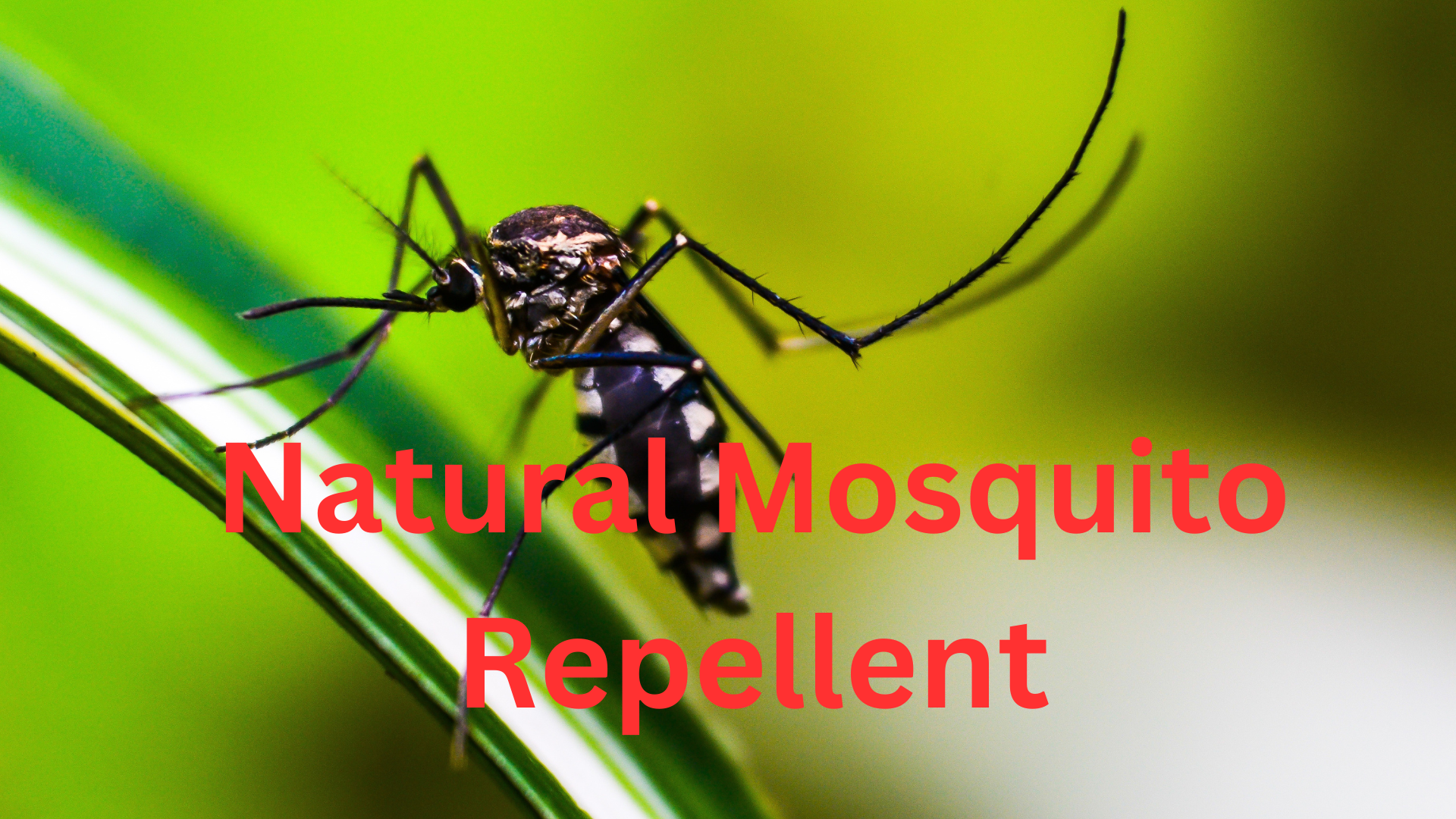We all know how annoying mosquitoes can be but did you know they can also can be reason for significant health risks? From itchy bites to potentially dangerous diseases, these tiny insects can be more than just bothersome. We we start use “Natural Mosquito Repellent” which provide you with an eco-friendly and effective option. In this blog we will explore why mosquitoes are a pain and what are the diseases they can carry and why using natural mosquito repellents is a smart choice.
We will also describe you how to make Natural Mosquito Repellent and use these natural solutions to keep those bloodsuckers away from you. So, let’s dive in and discover how you can protect yourself from mosquito bites the natural way, ensuring a peaceful and worry-free time outdoors.

Why Mosquitoes are Dangerous ?
Mosquitoes might seem harmless but they are far from it. These tiny creatures are dangerous for several reasons:
Disease Transmission: Mosquitoes are infamous for transmitting various diseases. The female mosquito, specifically the Aedes, Anopheles and Culex species are responsible for carrying and transmitting diseases to humans through their bites.
List of Diseases Transmitted by Mosquitoes
Mosquitoes are vectors for numerous deadly diseases, including:
- Malaria
- Dengue Fever
- Zika Virus
- West Nile Virus
- Chikungunya
- Yellow Fever
- Japanese Encephalitis
- Lymphatic Filariasis
These diseases can lead to severe health complications and in some cases even death. It’s essential to take measures to protect yourself from mosquito bites.

Why You Need Mosquito Repellent?
Using mosquito repellent is crucial for several reasons:
Disease Prevention: Mosquito repellents help to keep away from mosquito borne diseases by keeping the insects away from you.
Avoiding Discomfort: Mosquito bites can cause itching, swelling and discomfort. Repellents provide relief from these irritations.
Better Sleep: Repellents enable you to sleep peacefully without being disturbed by buzzing mosquitoes.
Protection for Children: Mosquito caused diseases are very dangerous for children. Repellents help safeguard their health.

What smell do mosquitoes hate?
Mosquitoes are known to dislike certain smells, and there are various scents that people believe may repel them to some extent. However, it’s important to note that no scent is guaranteed to be 100% effective, and individual responses can vary. Here are some smells that mosquitoes are commonly believed to dislike:
- Citrus: Mosquitoes are thought to be repelled by the scent of citrus fruits, such as lemon and orange. Citronella, a natural oil derived from lemongrass, is often used in mosquito repellent products.
- Peppermint: The strong aroma of peppermint is believed to be unpleasant to mosquitoes. Peppermint oil can be used in various forms, such as essential oil, to create a repellent effect.
- Lavender: The scent of lavender is often cited as a mosquito deterrent. Lavender oil can be applied to the skin or used in diffusers to help keep mosquitoes at bay.
- Eucalyptus: Eucalyptus oil has a strong scent that mosquitoes may find unpleasant. It is sometimes used in natural insect repellents.
- Tea Tree Oil: This essential oil, derived from the leaves of the tea tree, is believed to have insect-repelling properties, including against mosquitoes.
- Cinnamon: The smell of cinnamon is considered by some to be a mosquito repellent. Cinnamon oil or cinnamon-scented candles may be used for this purpose.

Types of Mosquito Repellents
There are various types of mosquito repellents available in the market, including:
DEET-Based Repellents: These contain N, N-diethyl-meta-toluamide and are highly effective in repelling mosquitoes. They offer long lasting protection but can have side effects if used excessively.
Picaridin-Based Repellents: Picaridin is a synthetic compound that provides effective protection against mosquitoes and is less likely to cause skin irritation.
Oil of Lemon Eucalyptus: This natural repellent derived from lemon eucalyptus oil can offer protection similar to DEET-based products but without the harsh chemicals.
Permethrin-Treated Clothing: You can treat your clothing with permethrin, a synthetic insect repellent to create a protective barrier.

Why Use Natural Mosquito Repellent
Natural mosquito repellents offer several advantages:
Eco-Friendly: They are kinder to the environment and reduce the use of chemicals in your surroundings.
Safer for Sensitive Skin: Natural repellents cause less skin irritation and make them a safer choice. Especially for those with sensitive skin.
Suitable for Children: Natural repellents are often gentle enough for use on children.
Pleasant Fragrance: They often have a pleasant aroma due to natural ingredients, making them a more enjoyable option.

How to Prepare and Use Natural Mosquito Repellent
Creating your natural mosquito repellent is simple and cost effective. Here’s a basic recipe using essential oils:
Ingredients:
- 10-15 drops of essential oil (e.g., citronella, lavender, eucalyptus, or lemongrass)
- 2 tablespoons of a carrier oil (e.g., coconut oil or jojoba oil)
Instructions:
- Mix the essential oil with the carrier oil in a small, empty spray bottle.
- Shake well to ensure thorough blending.
- Apply the mixture to your skin, avoiding the eyes and mouth.
- Reapply every few hours for continuous protection.

Conclusion
Mosquitoes extend beyond mere nuisances, presenting a genuine hazard to human health. Safeguarding against their bites is imperative, and natural mosquito repellents provide an environmentally friendly, secure, and efficient solution. By adhering to uncomplicated recipes and recommendations, you can create your own natural repellent, enabling you to relish outdoor activities without concern about mosquito-borne diseases. Prioritize safety, embrace natural solutions, and keep mosquitoes at a distance.
Frequently Asked Questions (FAQ)
Q. Are natural repellents as effective as chemical ones?
A. Natural repellents can be effective but their duration of protection may be shorter than some chemical options. You may need to reapply them more frequently.
Q. Can I use natural repellents on children?
A. Many natural repellents are suitable for children but always read the product labels and consider the child’s age before use.
Q. What if I have allergies to certain essential oils?
A. If you have allergies then test the repellent on a small area of skin before widespread use. Opt for essential oils that are less likely to trigger allergies.
Q. Are there natural ways to repel mosquitoes in addition to repellents?
A. Yes, you can use natural methods such as wearing long sleeves and pants, using mosquito nets, and eliminating standing water where mosquitoes breed.
Q. Can I use multiple types of repellents together for added protection?
A. It’s generally not recommended to use multiple repellents simultaneously as it can lead to skin irritation. Stick to one type at a time.